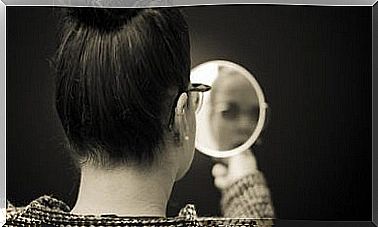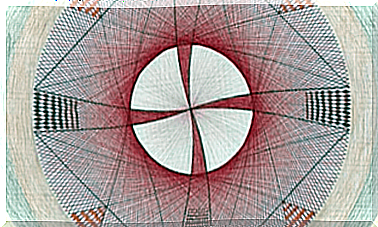Period. End Of Sentence: A Revolutionary Short On Menstruation
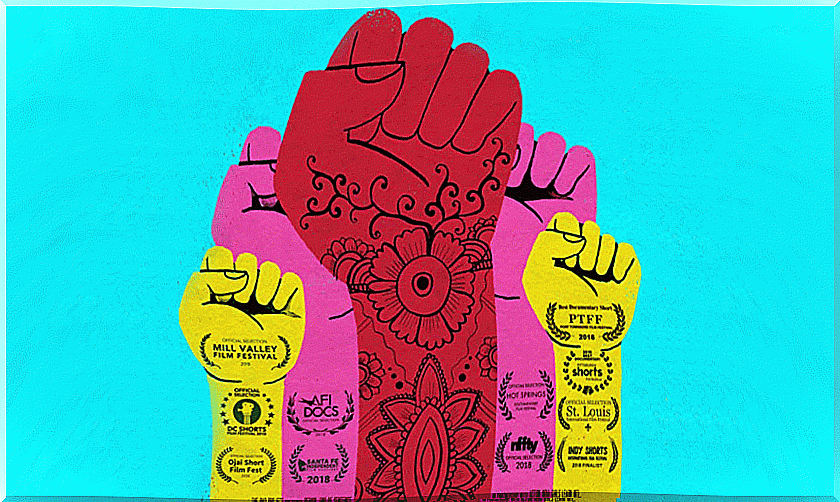
“I can’t believe that a movie about menstruation just won an Oscar”, with these words, an emotional Rayka Zehtabchi thanked the Academy Award. And it is not for less, Zehtabchi and her companions have managed to give visibility to a problem suffered by many women in India.
Period. End of sentence shows us a silenced truth, some women who are forced to drop out of school for the simple fact of not being able to change the scarf they use during their menstruation.
Period. End of sentence won the statuette for best documentary short in a gala not without controversy, but quite diverse. In the world of Hollywood, we have never seen so many African American award winners, seven in all; in addition to twelve presenters also black. Likewise, the gala was dyed with accents, with a Spanish accent, specifically, Mexican.
Some of the winners took the opportunity to remember the importance of embracing differences, as did Peter Farrely, Spike Lee and even Rami Malek, who recalled their Egyptian origin. Even Javier Bardem took the opportunity to launch a message in Spanish and free of borders. But despite good intentions and embracing diversity, the truth is that female names are conspicuous by their absence in the world of cinema.
The figures could not be more alarming, in the mixed categories, there were 143 male nominees, compared to 48 female. And it should be noted that no woman was as a director.
The award to Period. End of sentence broke the barrier a bit that night, because it is not only a short film made by women, but it also talks about menstruation and the taboo that exists in India.
Period. End of sentence : another cinema is possible
Another form of consumption has appeared and films have found a new form of diffusion. This form of diffusion is none other than streaming platforms . Period. End of sentence found on Netflix a good way to make itself known and has made this short an even more powerful weapon. Your important message has reached a large number of people.
We hardly find women behind the scenes, much less examples that speak of menstruation in a clear way.
Disney dared with an educational short entitled The story of menstruation in 1946. This short aimed to teach women what exactly their period consisted of, however, the truth is that, in addition to being old-fashioned, it is creepy.
Menstruation has often been viewed as dirty, a stigma full of negative connotations, and as a consequence, women have been pushed aside during their periods.
In an article from the Faculty of Medicine of the Autonomous University of Nuevo León, a diachronic vision is offered about the symbolism and practices associated with menstruation. Unfortunately, these kinds of articles are quite recent and rarely do we rely on a historical and cultural perspective.
In fields normally dominated by men, it is not surprising that menstruation has not been the subject of study. The vision we see in the media is not close to reality either, the sanitary pads advertisements offer us an image with which no woman will feel identified.
Therefore, Period. End of sentence turns out to be a revolutionary short film, it brings some light and naturalness allowing women to feel free to talk about it. Information should be given early and in the most natural way possible.
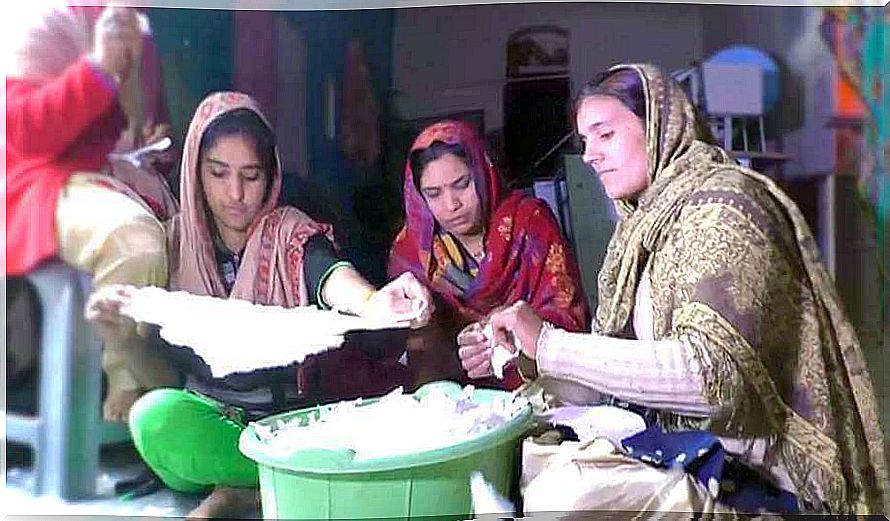
A new vision
Period. End of sentence is not just a short about menstruation, it is a short that shows us a small but important revolution that is taking place in the Indian village of Kathikhera. Women will create an alliance in order to improve their situation and that of their partners, putting an end to an unjust exclusion.
Through interviews and the opinions of a group of men and women, we know a reality that, for many of us, was unknown.
Currently, we cannot come to believe that a woman has to abandon her studies for something as natural as menstruation. However, in Kathikhera, this is the case. These women are forced to use a cloth when they have their periods, and sometimes something as simple as being able to change is especially difficult. To this enormous difficulty, we must add the existing taboo in society.
Even in the Western world, the rule can become taboo, it can become a problem and generate some misunderstanding. On numerous occasions, we find ourselves faced with a certain lack of understanding or empathy that not only comes from men, but also from some women.
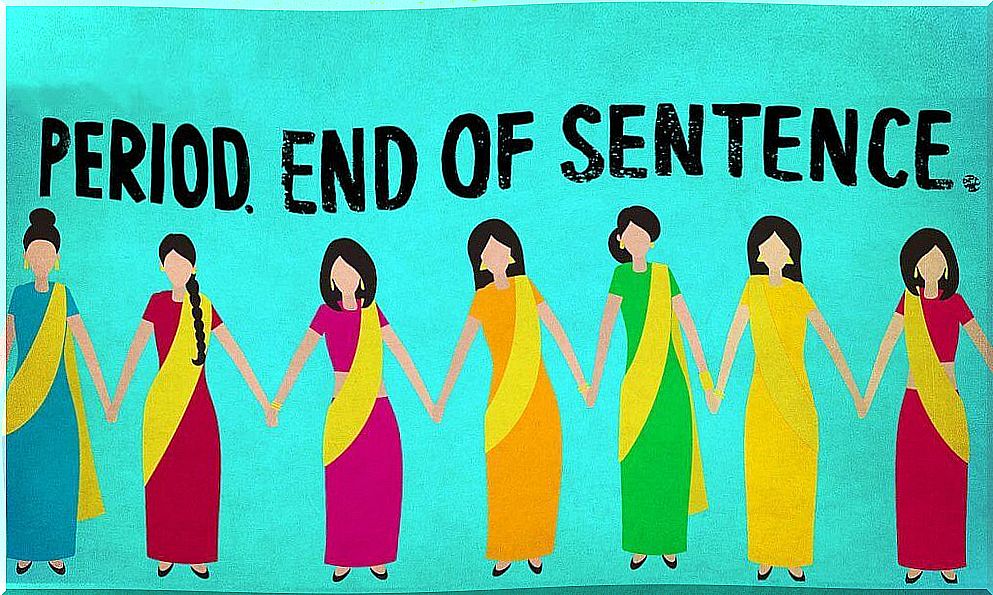
No one hesitates to put themselves in the shoes of the other with a sore throat, a cold or fever. But when it comes to menstruation, the various physical and psychological problems of many women during menstruation tend to be overlooked. This happens in the West, but in the village we see in the short film, the situation worsens. The word itself is already taboo and women cannot even pray during those days of the month.
Period. End of sentence shows us the absolute ignorance of some men about the rule ; of embarrassed women who do not even know how their menstrual cycle works and who did not know why their first bleeding was caused either.
In any supermarket, we can find pads or tampons, but this is not the case in the village we see on the screen. Even in our supermarkets, the prices are quite exorbitant for products that we do not use for pleasure, but for necessity.
What is normal for many of us is impossible for these Indian women. Therefore, it will be the women themselves who decide to start a business and manufacture their own sanitary towels that they will sell at an affordable price. Something that, paradoxically, has been possible thanks to the invention of a man who has managed to understand the problem faced by the women of Kathikhera.
The difficulties are enormous and the constant blackouts make work difficult, but the illusion to create a better society is stronger than any problem. Period. End of sentence marks a before and after, it brings some light to a topic that has barely been explored from the audiovisual media and, of course, vindicates the courage and decision of these Indian women.
Women who, far from being satisfied with their exclusion, decide to claim their rights and start a business that, in addition to giving them some economic independence, represents a real revolution in their small village.
A look towards a more egalitarian future, in which no woman has to be excluded due to her menstruation. With this initiative, they have also managed to create stronger ties between them, working together and fighting for their future. A whole lesson in sisterhood and improvement.


